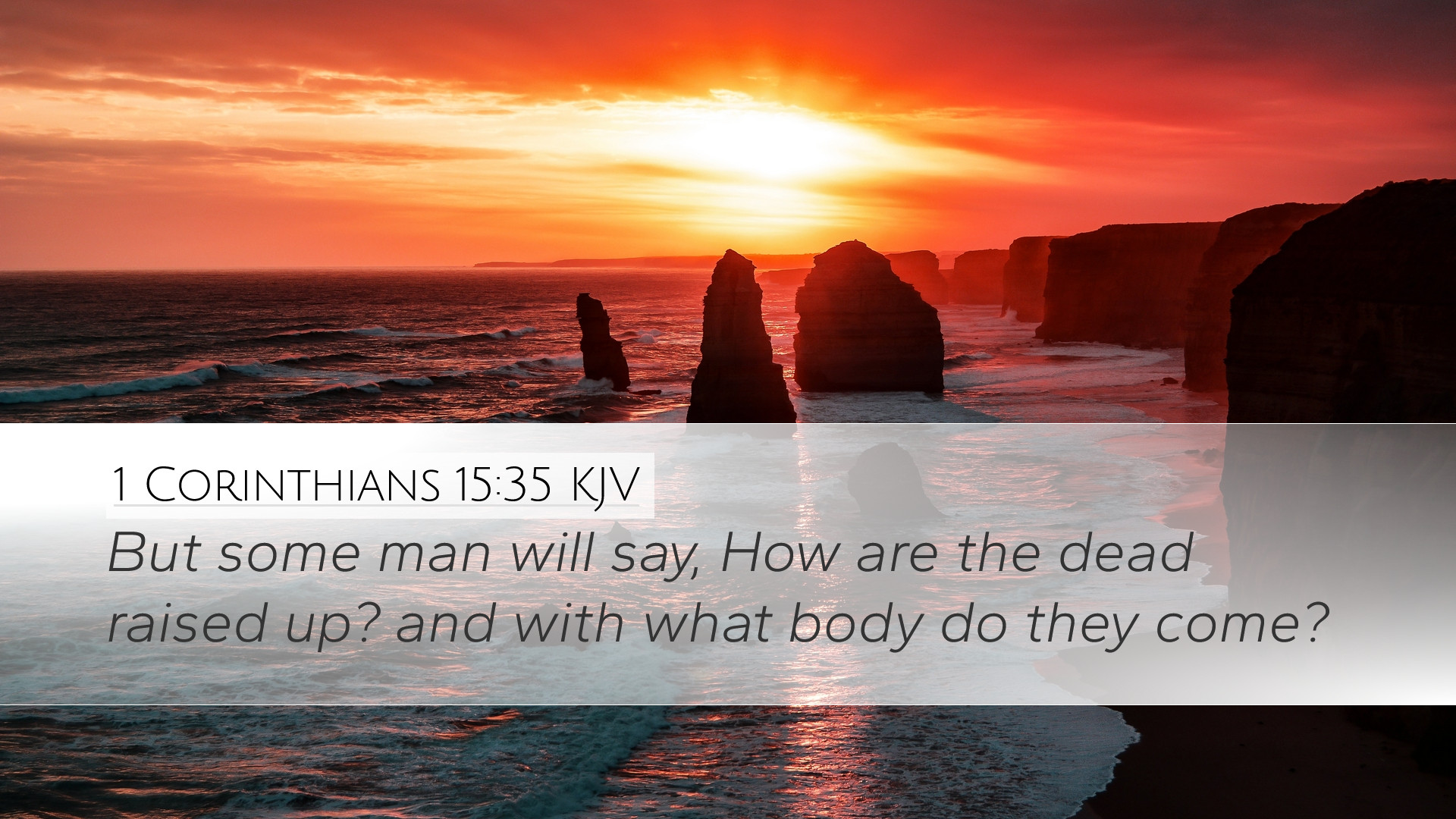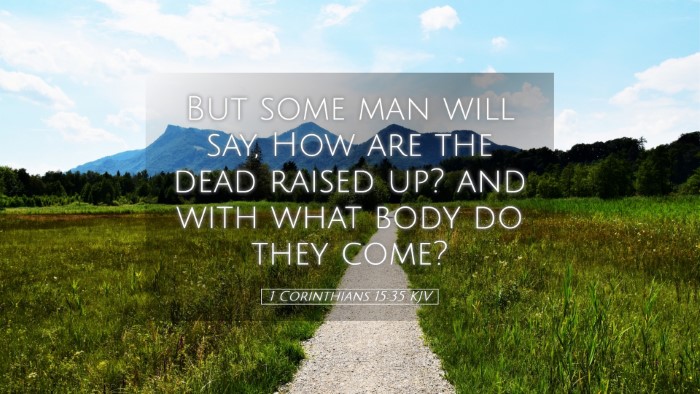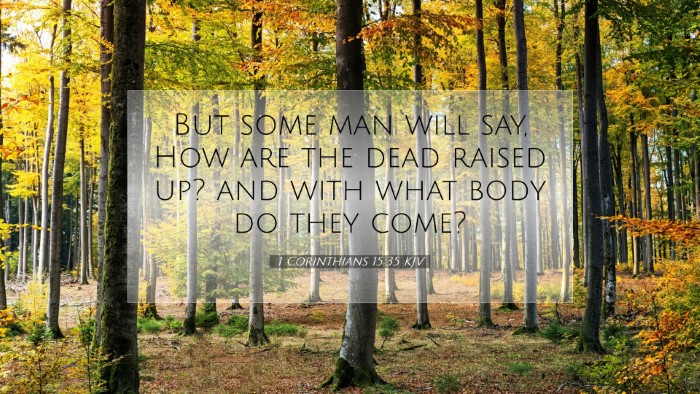Commentary on 1 Corinthians 15:35
Verse: 1 Corinthians 15:35 - "But someone will ask, 'How are the dead raised? With what kind of body will they come?'
Introduction
This rhetorical question posed by the Corinthians indicates a common skepticism regarding the resurrection of the dead. Paul addresses concerns that arise from both philosophical reasoning and practical observations about the nature of bodily resurrection. This commentary seeks to unravel the depth of theological significance and practical implications embedded in this verse.
The Question of Resurrection
Paul anticipates a challenge from the Corinthians—how can the dead be raised? This question emerges from a need for deeper understanding about the resurrection, a cornerstone of Christian faith. The inquiry is not merely about physical resurrection, but it's a plea to comprehend the power of God in transforming the dead.
As Matthew Henry notes, the query reflects a doubt about divine capability, and humanity's limitations in understanding resurrected life. Paul responds with a robust theological exposition that demands the reader to reconcile faith with genuine curiosity.
Presuppositions of Skepticism
Skepticism about the resurrection arises from misconceptions about life and death. Albert Barnes underscores that this question indicates a misunderstanding of God’s power to give life beyond physical death. Many view death as the ultimate end, not recognizing it as a transition to a new form of existence.
This perspective constrains God to human limitations, undermining His sovereign plan for resurrection. Paul confronts this notion by emphasizing the miraculous nature of divine intervention where conventional reasoning fails.
The Nature of the Resurrected Body
Addressing the second part of the question—"with what kind of body will they come?"—Paul introduces a profound exploration of resurrection bodies. Adam Clarke discusses the transformation that takes place during resurrection. He argues that the resurrected body will not merely be a duplication of the mortal body; rather, it will possess glorified attributes.
He emphasizes the continuity and discontinuity aspect—the resurrected body retains identity yet transcends earthly limitations. Clarke highlights, "It is sown a natural body; it is raised a spiritual body." This points to an existence infused with divine glory, in which physical limitations are overcome.
Theological Implications
The inquiry into the resurrection reveals significant theological implications. The question serves as a foundation for discussing the nature of life, death, and eternity in Christ. Matthew Henry expounds on the necessity of faith in understanding resurrection. The fallen world, constrained by sin and death, finds redemption and hope in the resurrection of Jesus Christ.
In light of Paul's exposition, believers can grasp the fullness of eternal life. Resurrection isn’t merely a return to life but a transformation into a new existence reflective of Christ's glorious body.
Practical Applications for Believers
The exploration of the resurrection introduces practical takeaways for the Church today. Albert Barnes encourages the Church to hold fast to the hope of resurrection, urging believers to view death through the prism of Christ’s victory over the grave. This hope should inspire a life of service, sanctification, and readiness for the eternal existence promised in Christ.
- Understanding Death: Recognize death as a transition, not an annihilation.
- Living in Hope: Embrace the hope of resurrection to inspire daily faithfulness.
- Encouraging Others: Share the truth of resurrection with those who grieve, offering hope in Christ.
Conclusion
The question posed in 1 Corinthians 15:35 serves not only as a point of theological inquiry but also as an invitation to deeper faith. Through Paul's teachings, believers are encouraged to cultivate a robust understanding of resurrection that breathes hope and purpose into the Christian life.
Ultimately, this passage lays a foundation for understanding the profound mystery of life after death, rooted not in human understanding but in divine revelation.


